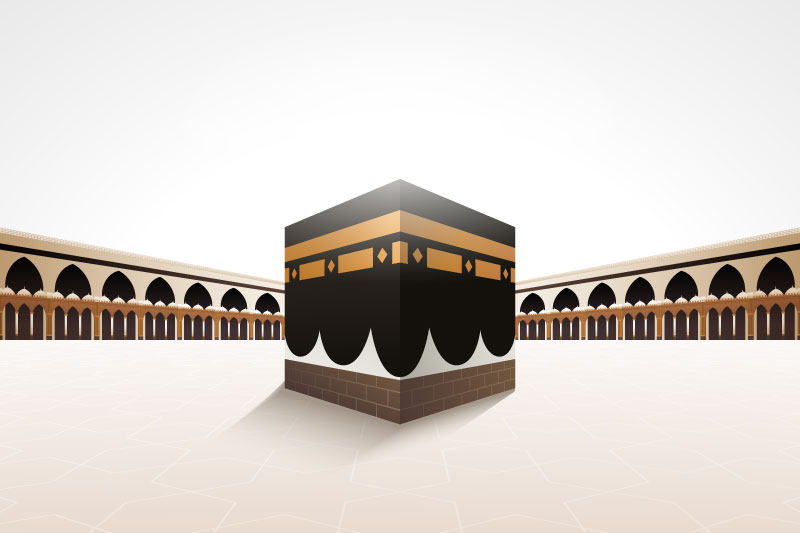The decision to perform Umrah is a moment of great joy and anticipation for a Muslim. It’s the chance to embark on a sacred journey to the Holy Lands, seeking spiritual fulfillment and a closer connection to Allah. When pilgrims begin their planning, they are often drawn to the convenience of all-inclusive Umrah packages. These packages seem to cover every detail, from flights and hotels to transportation and guidance, offering the promise of a stress-free and seamless experience. However, the term “all-inclusive” can sometimes be misleading. While these packages are incredibly convenient, they often have costs that are not explicitly listed in the initial price. This can lead to unexpected financial surprises, causing stress and distracting from the spiritual essence of the journey. This article will break down the most common hidden costs in Umrah packages, equipping you with the knowledge to budget accurately and ensure your focus remains on your faith, not your finances.
Pre-Trip Costs: Before You Leave
Before you even step foot on the plane, there are a number of expenses that may not be covered by your package. One of the most significant is the visa and processing fees. While some premium packages include the cost of the Umrah visa, many standard packages do not. It’s important to check this detail carefully. Furthermore, if you need to travel on short notice, the cost of expedited visa processing can be quite high. It's an essential item to budget for if you want to avoid a last-minute scramble. Another critical, yet often overlooked, cost is for vaccinations and health check-ups. Saudi Arabia requires specific vaccinations for pilgrims, such as the Meningitis ACWY vaccine. These medical costs are almost never included in a travel package, so you must factor them into your budget.
Lastly, consider your travel to the departure city. While a package might cover your flight from a major hub like New York or Chicago, it doesn't account for the cost of getting there from your hometown. For many people, this can be a major expense, especially if it requires an additional flight or long-distance travel. This "pre-flight" travel cost is a crucial part of your overall budget that is entirely your responsibility.
On-The-Ground Costs: In Saudi Arabia
Once you arrive in the Holy Land, you might think all your expenses are covered, but this is rarely the case. Tips and gratuities are a significant, yet often unspoken, cost. It is a cultural norm to tip guides, drivers, and hotel staff who provide excellent service. While not mandatory, it is a gesture of appreciation and something you should budget for to ensure a smooth and respectful experience. Another potential hidden cost is for Ziyarat (sightseeing) expenses. While your package may include a tour of major sites like Mount Uhud or the Cave of Hira, it might not cover entrance fees for certain places or additional transportation if you want to explore on your own. For example, if you decide to visit a museum or a specific market, you'll need to pay for your own transportation and entry fees.
Finally, a major source of unexpected spending is shopping and personal items. It is a tradition for pilgrims to buy souvenirs and gifts for family and friends back home. From dates and prayer mats to perfumes and jewelry, these purchases can add up quickly. It's a good idea to set a specific budget for this, so you can enjoy the experience without worrying about overspending.
Daily And Unexpected Expenses
Even with a well-planned itinerary, you will encounter daily expenses that are not included in your package. One of the most common hidden costs is for meals not included. Many packages only cover breakfast, leaving lunch and dinner as personal expenses. Even if a package includes all three meals, it often doesn't account for snacks, water, and drinks purchased throughout the day, especially during long hours of worship or sightseeing. You will need a significant amount of cash for these daily needs. Additionally, while transportation between the main pilgrimage sites is usually covered, local transportation within the city is often your responsibility. If you need to take a taxi or use a ride-share service for personal errands, these costs are not part of the package.
Telecommunication costs are also a hidden expense. While you might be able to use Wi-Fi at your hotel, it’s not always reliable. Many pilgrims opt to buy a local SIM card to stay connected with their families, which is an additional cost. Finally, and most importantly, it is crucial to set aside an "emergency fund" for unforeseen circumstances. This fund can cover anything from unexpected medical needs to a sudden flight change or a lost item. Having this safety net will give you immense peace of mind. A well-prepared pilgrim knows that a small, dedicated emergency fund is an essential part of their journey. A reputable provider like Dawahtravels will always advise you on the importance of budgeting for these "what if" scenarios.
Conclusion
Understanding the true cost of an Umrah package is the first step toward a peaceful and spiritually rewarding journey. By recognizing that the term "all-inclusive" has its limitations and by budgeting for the common hidden costs—from pre-trip expenses to on-the-ground spending and emergency funds—you can avoid financial surprises. This proactive financial preparedness provides an invaluable sense of security and allows you to let go of material worries. When your mind is at ease, you can focus on the real purpose of your pilgrimage: your devotion and connection to Allah. Being financially prepared allows you to fully immerse yourself in the sacred atmosphere, ensuring that your Umrah is a truly blessed and stress-free experience.



